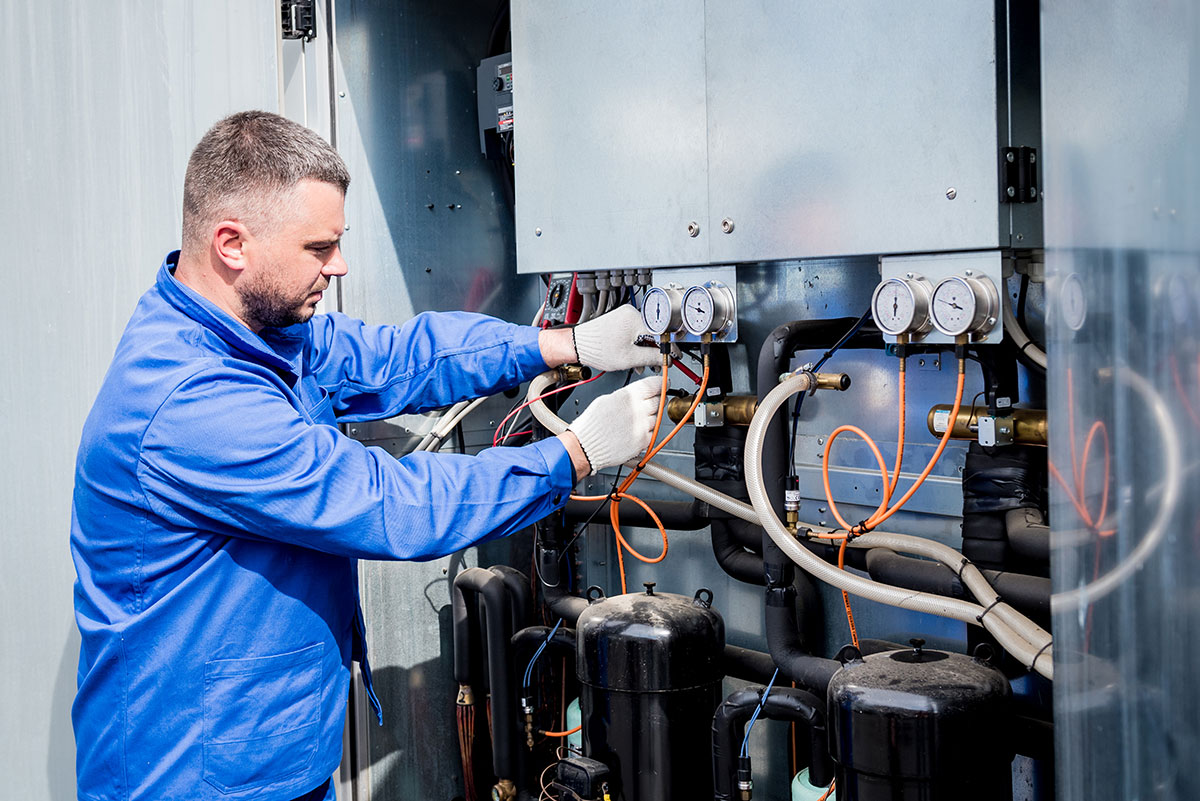Homeowners spend big money on energy-efficient windows and doors in hopes of reducing utility bills. These home improvements seem like wise investments until they realize seasonal HVAC maintenance can significantly cut costs without draining a checking account. The U.S. Department of Energy notes that heating and cooling units are responsible for more than half of a home’s energy consumption.
If you truly want to save money and minimize your carbon footprint, seasonal HVAC maintenance is the best place to start.
HVAC Spring Maintenance Tips
Dirty and congested air filters rank among the primary reasons for HVAC inefficiency. It doesn’t take long for dust, pollen, pet hair, and other airborne elements to impede the flow of fresh air. Outdated filters force the mechanical components to work harder when pulling air into the unit. That means your system unnecessarily consumes more energy than it would otherwise require.
The good news is that removing clogged air filters and replacing them with new ones is a task most homeowners can perform. Along with helping to make the system more energy efficient and lowering monthly bills, replacing the filters buoys indoor air quality improvement. Manufacturers typically recommend air filter replacement every three months. These are other spring maintenance tips that help reduce energy consumption.
- Remove Debris Around Outdoor Units: If you have an outdoor condenser unit, remember to clear away any brush, tall grass and debris that may accumulate near it.
- Clean Condenser Coils: Take a moment to lightly spray outdoor units with a hose to eliminate soot, dust, and elements that may cling to them. Take care not to use too much force and bend the condenser’s fins.
- Clean Condenser Drain: Pouring a cup of vinegar down the drain line helps avoid clogs and tamp down algae growths. That’s an example of DIY maintenance for HVAC systems that most homeowners can manage.
Anytime the AC hasn’t been utilized in a while, it’s prudent to test it. Consider running the AC for a brief period before the hot weather months arrive.
HVAC Summer Maintenance
It’s not uncommon for Texans to overcompensate during the scorching summer months. We tend to lower our thermostats to levels that are well below what we need. Consider raising your thermostat to the highest degree Fahrenheit possible that also allows you to feel comfortable indoors. Over the course of the summer, you will use less energy and save money. These are other cost-effective HVAC solutions worth considering.
- Check Vents: Take a step back and examine how your living space is laid out. Make sure furniture, entertainment centers, and other items do not obstruct ventilation.
- Check Insulation: When cool air escapes, the indoor temperature rises quickly, and your HVAC system gets triggered. Check for drafts and climate controlled air loss and cure these issues with insulation.
- Vents and Registers: Take a vacuum and periodically suck the dust and lint that builds up on vents and registers. Just like clogged filters, these accumulations force the unit to work overtime.
While these are great ways for a handy DIYers to take proactive energy efficiency measures, it’s also important to get professional help. An experienced HVAC system expert can help you maximize your system’s potential.
Fall HVAC Maintenance
It’s essential to schedule professional HVAC check-ups during autumn. A certified heating and cooling technician performs a visual inspection followed by a thorough diagnostic check. With an in-depth understanding of your HVAC system’s strengths and inefficiencies, a specialist can make minor adjustments and replace parts that might result in an untimely breakdown, with the goal of HVAC system performance optimization in mind. These are other things a professional can address to maximize HVAC performance and energy efficiency.
- Clean Dust and Particles from Duct System
- Ensure the Flue System Remains Secure
- Evaluate Thermostat Calibrations
- Inspect and Tighten Electrical Connections
- Inspect Carbon Monoxide Detectors
- Lubricate Moving Parts
- Refresh and Adjust the Blower
- Replace Furnace Filter
- Replace Thermostat Battery
- Update Refrigerant Charge
Having the heating system tested is also a must as the cold weather months arrive. The last thing a working family needs is a mechanical failure in the middle of a deep freeze.
HVAC Winter Maintenance
Winter tends to be the driest season in the greater San Marcos area. To offset the lack of moisture in the air, it may be prudent to monitor humidity levels and integrate a humidifier. The sweet spot for indoor humidity generally runs between 30 and 50 percent. These are other early winter HVAC tips to consider.
- Inspect ductwork for signs of leaks or damage.
- Avoid changing the thermostat setting too often.
- Look for mold and mildew.
If your HVAC unit keeps breaking down or is nearing its life expectancy, it may be a good time to get an estimate on a replacement. Outdated units generally cannot match the level of energy efficiency of today’s certified Energy Star models.
Woods Comfort Systems Offers Seasonal HVAC Maintenance
Preventative maintenance practices are the keys to keeping your HVAC system running smoothly year-round. The team at Woods Comfort Systems hopes these seasonal energy efficiency tips serve you well. If you would like to schedule a professional HVAC service or discuss a Seasonal HVAC Maintenance Plan, contact us today at (512) 253-8927
Proudly serving these areas and nearby communities:
- Austin, TX
- Buda, TX
- Canyon Lake, TX
- Dripping Springs, TX
- Kyle, TX
- Lockart, TX
- New Braunfels, TX
- San Marcos, TX
- Wimberley, TX


